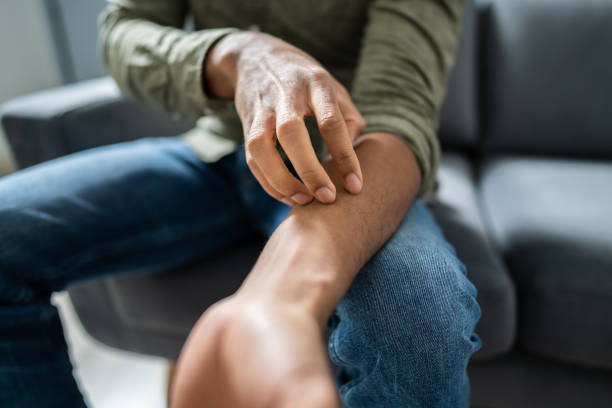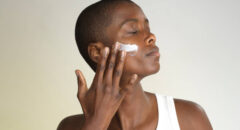
Eczema has been called “the itch that rashes” because the itching usually occurs first. This group of skin rashes may first appear in babies and toddlers, becoming a drier, flaky rash in older children. Adults may see scaly, leathery patches or a stubborn hand eczema. Atopic dermatitis is a common, often inherited form, but there are other types, as well as many treatment options.
Stop the Scratching
People with atopic dermatitis may scratch as many as 500 to 1,000 times a day. That scratching worsens the rash and can increase the risk of infection due to breaks in the skin. Use a cold compress to lessen the itchy feeling. Distract children with activities. Moisturizers are soothing, and some medicated creams or ointments may help, too.
Treatments
Corticosteroids
Over-the-counter hydrocortisone creams or ointments may help mild cases of eczema but should not be used on children under 2 or for more than seven days without consulting a doctor. Stronger corticosteroid products may be necessary to control the inflammation. Side effects from extended use include skin thinning, infection, and stretch marks. In rare cases that haven’t responded to other treatment, a doctor may prescribe oral or injectable corticosteroids.
Antihistamines
Antihistamines may provide relief from the vicious cycle of itching and scratching for some, but not all, people with the atopic dermatitis type of eczema. Many OTC and prescription-only options are available, each with slightly different dosing and side effects. Check with your health professional for a recommendation.
Immune Modulators
Prescription topical medicines that calm an overactive immune system, such as Elidel and Protopic, may help treat eczema from atopic dermatitis. Doctors generally prescribe them only when other treatments have failed, for short-term use, in certain patients. They’re required by the FDA to carry a “black box” warning due to concerns about an increased risk of cancer. However, the American Academy of Dermatology disagrees with the FDA’s safety warning. It’s best to discuss the risks and benefits with your healthcare provider.
Hand Eczema
People with severe hand eczema may get relief from a promising new drug. Studies have shown that alitretinoin, a relative of vitamin A, can greatly improve or even clear up hand eczema that didn’t respond to other treatments. It hasn’t yet been approved by the FDA for this use. It can cause headaches or dry, flushing, or sun-sensitive skin. You should not become pregnant while taking alitretinoin because it can cause severe birth defects.
Phototherapy
UV light affects the immune system and can improve moderate to severe cases of eczema from atopic dermatitis or contact dermatitis. PUVA is a UV treatment combined with psoralen, a medication. Because UV light can cause skin damage or premature aging of the skin and increases the risk of skin cancer, you should discuss the risks and benefits with your healthcare provider. It may not help or worsen eczema in some people.
Treatments for Children
Corticosteroids of various strengths may be used in children with atopic dermatitis, depending on the severity of the condition. Potent corticosteroids can suppress growth in children. Prescription topicals Elidel and Protopic have been approved by the FDA for children 2 years of age or older. Lifestyle changes are also important. Keep your child’s fingernails short and their skin moisturized. Dress them in loose-fitting clothes and make sure they do not become overheated.
Bleach Baths
A small amount of household bleach in the bath may help control atopic dermatitis when there is a staph infection present, too. In one study, children with moderate to severe atopic dermatitis and staph soaked in diluted bleach baths and used an antibiotic ointment in their noses. These treatments significantly improved their skin symptoms. Parents should consult a dermatologist or other health care provider first to see if bleach baths are appropriate.
Herbs and More
Some promising studies showed that probiotics, oolong tea, or Chinese herbal medicine may ease symptoms. However, other studies have not been supportive. Herbs and supplements are not regulated as closely as medicines and can sometimes have harmful effects. Be sure to talk to your doctor or other health care provider before taking herbs or supplements. Stress-reducing therapies such as massage and relaxation may also be helpful.








